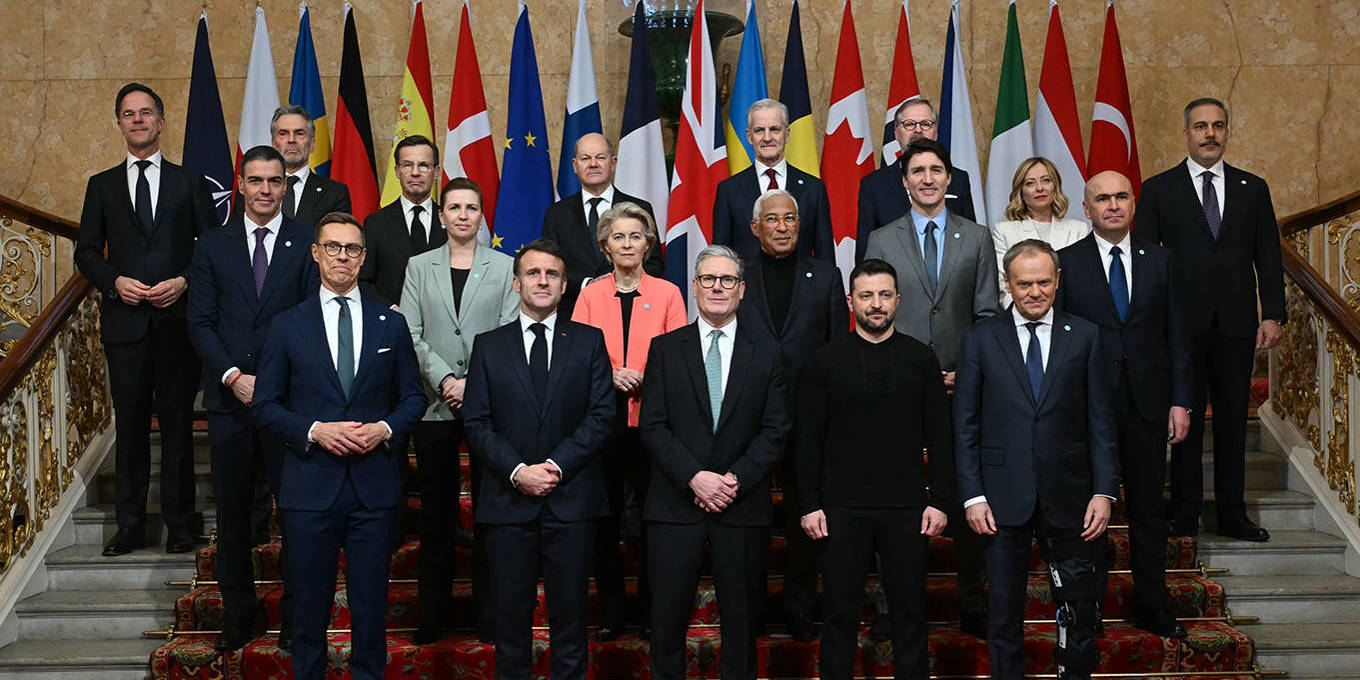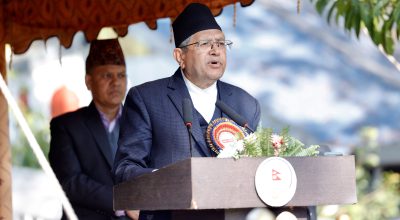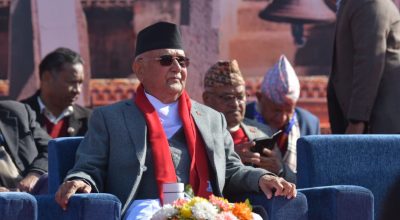
Sigmar Gabriel, Peter Eitel
BERLIN, MARCH 27 (PS): President Donald Trump’s radical changes to US foreign policy have led many to suspect that he wants to align America more with Russian President Vladimir Putin over the long term. The expectation now is that the United States, China, and Russia will carve up the world among themselves, as the victors of World War II did at the 1945 Yalta Conference. As Trump abandons America’s 80-year-old commitment to preserving a rules- and law-based international order, the world is heading back to the age of “might makes right.” Yet because Trump sees all diplomacy as transactional, he is surrendering America’s main power multiplier: its ability to form and lead alliances.
Of course, Trump’s approach does not necessarily mean that he will seek an especially close relationship with Putin or express admiration for Chinese President Xi Jinping. Moreover, one should not assume that Putin and Xi would ever come to trust the US, even if they become friendly with Trump. Why would the leaders of authoritarian, dictatorial systems suddenly put their faith in a country whose strategy could fundamentally change after the next election?
A better description of the situation is that Trump has turned not so much toward Russia as away from Europe. He simply wants to be done with the war in Ukraine and, ideally, with the entire transatlantic partnership. As a project that confers equal rights on all its member states, the European Union flies in the face of his understanding of the world.
In Trump’s view, the Ukraine war and America’s obligations toward European allies are costly obstacles to national greatness. He believes that the US can dominate the world single-handedly if it dispenses with rules, norms, and international commitments. The ensuing great-power competition need not rise to the level of military conflict, but it will certainly feature a war-like struggle for technological, economic, and financial supremacy.
Such a change in US strategy has profound implications for Europe. America’s withdrawal leaves a power vacuum on the continent, which is already being buffeted by the harsh crosswinds of the geopolitical competition. Trump thinks he has unburdened America by abandoning Europe, but the Russians and Chinese know better. They are all too eager to exploit the breakdown of the transatlantic alliance. Ultimately, Trump, Xi, and Putin will each try to divide Europe, albeit for their own reasons.
Paradoxically, at a time when the global center of gravity has shifted from the Euro-Atlantic to the Indo-Pacific, Europe is nonetheless becoming the fulcrum of world politics once again. Europe may not yet have much geopolitical heft without the US, but that doesn’t mean its member states and institutions are condemned to be minnows swimming in a sea of sharks. Europe’s technological, economic, and military potential is substantial; Europeans’ success or failure at realizing it will determine the future world order.
Until now, the EU’s need for unanimity has rendered it ineffective and too slow to act, owing to the considerable differences between its member states. Thus, the first task is to develop a new structure for cooperation. The recently proclaimed “coalition of the willing” in support of Ukraine is a first major step toward freeing ourselves from dependency on the US. Notably, this initiative includes non-EU members, and it is being led by France and the United Kingdom, rather than by the EU.
With France and the UK (each a nuclear power) continuing to lead, the group should create a provisional security council to work toward establishing a European defense union that also includes Germany, Poland, and Italy. In addition to addressing questions of membership, this council can clarify the coalition’s relationship with the EU and NATO, determine members’ contributions to conventional and nuclear deterrence, and coordinate military support for Ukraine.
But these changes will not be enough for Europe to survive on its own. Europe also must find new sources of economic strength. Beyond reducing bureaucracy and creating attractive conditions for companies, Europe needs stronger incentives to promote innovation and research and development. If it cannot marshal the resources to attract the world’s top researchers and most innovative companies, it will not achieve the dynamism that it needs.
Finally, Europe must work with its neighbors to the south. By contrast, withdrawing from international cooperation to focus its resources on tanks and grenades would only fuel the zero-sum geopolitical contest that Europe is trying to navigate around.
Germany will have a central role to play in these efforts. For many years, it seemed to lose sight of Europe, engaging in fruitless navel-gazing. Fortunately, this dangerous posture now seems to be a thing of the past. Even before taking office, incoming Chancellor Friedrich Merz has sent a powerful signal to the world: Germany is back, and it is back in an altogether different way. The vast sums of money promised to strengthen its defense posture and infrastructure show that these are not empty words. Merz understands that a successful German “pivot to Europe” requires a robust, dynamic German economy.
Merz and his future coalition partner, the Social Democratic Party, clearly recognize how much Europe’s fate depends on Germany stepping up to promote European integration. So, too, does French President Emmanuel Macron, who is already working in close coordination with the incoming German leadership.
But Germany can also help Europe by remaining a strong voice for dialogue and diplomacy, even as it embarks on a new defense-building drive. Military strength and openness to engagement are two sides of the peace-building coin. The future of European peace and prosperity is now wholly in Europeans’ hands.
Sigmar Gabriel, a former federal minister and vice chancellor of Germany, is Chairman of Atlantik-Brücke. Peter Eitel is Senior Director of Geopolitical Risk Advisory at FTI Consulting in Germany.
Copyright: Project Syndicate, 2025.
















